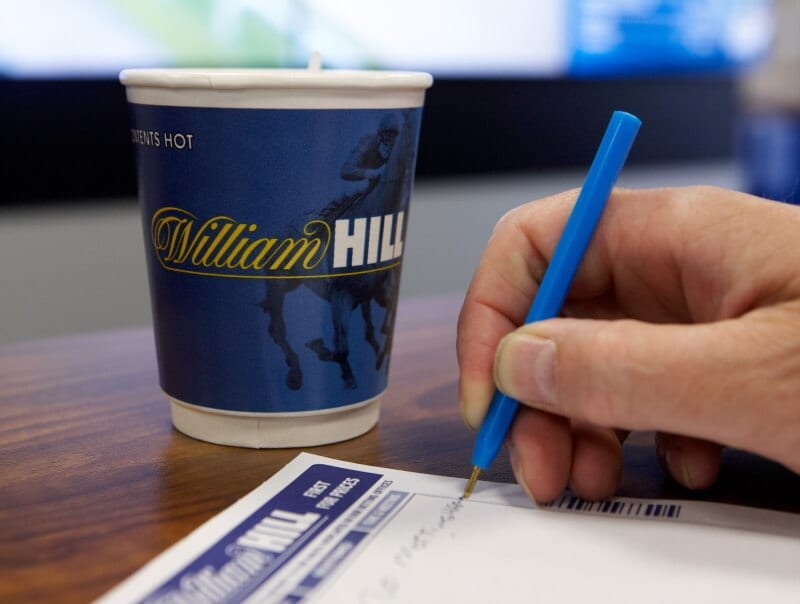888 and Caesars agree to cut price of William Hill assets by £250m

The original deal stated that 888 would pay Caesars Entertainment £834.9m to acquire the assets, but this has been reduced by £250.0m to “reflect the change in the macro-economic and regulatory environment” since the initial announcement.
As a result, the total enterprise value of the acquisition – also including share-based payments – has been lowered from £2.20bn to £1.95bn.
The amended deal also includes an agreement to pay up to £100.0m in deferred consideration in 2024, conditional upon the enlarged group achieving a certain level of adjusted earnings before interest, tax, depreciation and amortisation (EBITDA) for 2023. If payable, 888 may pay this in cash or by issue of new ordinary shares.
“The board of directors of 888 continues to believe that the acquisition represents a transformational opportunity for 888 to significantly increase its scale, further diversify and strengthen its product mix and build leading positions across several of its key markets,” 888 said.
“The board continues to believe the acquisition has highly compelling strategic and financial benefits, with the current macro-economic environment and changing market conditions across its key markets only serving to strengthen the rationale for bringing together two highly complementary businesses and combining two of the industry’s leading brands.”
888 said alongside the strategic benefits the combination is expected to deliver significant operating efficiencies, including pre-tax cost synergies of at least £100.0m by 2025, of which £15m would be in capital expenditure synergies.
The operator added that it expects to cumulatively achieve approximately £5m of such synergies in 2022, £54m in 2023, £70m in 2024, and £100m in 2025.
“The enlarged group will be strongly growth-oriented, benefitting from a clear scale advantage and strong product and geographic diversification,” 888 said. “With a focus on regulated markets, it will be able to offer customers world-class products, supported by leading betting and gaming brands, driving sustained growth and shareholder value creation over the medium and long term.”
In terms of financing the deal, 888 has fully committed debt financing from JP Morgan, Morgan Stanley, Mediobanca and Barclays Bank PLC of approximately £2.1bn, which may take the form of senior secured term loans, other senior secured debt or other junior debt, as well as a fully committed revolving credit facility of £150.0m.
888 said it also intends to issue up to 70.8 million new ordinary shares via an accelerated bookbuild, representing approximately 19% of the total issued share capital of the business. This placing is expected to raise approximately £500.0m of gross proceeds to help fund the deal.
The placing, 888 said, will launch immediately following today’s (7 April) announcement.
“The company has consulted with its major institutional shareholders ahead of release of this announcement and the separate announcement on the placing, which has confirmed the board’s view that the placing is in the best interests of shareholders, as well as wider stakeholders in the company and will promote the success of the company,” 888 said.
A combined prospectus and circular for the acquisition will be published in the coming weeks, with a shareholder vote expected in May 2022 and completion in June 2022.
Meanwhile, 888 has issued a trading update for the first quarter of its 2022 financial year, saying revenue is likely to reach between $222.0m and $226.0m. The lower bound figure would be equal to Q4 of last year, while the upper bound would be 2% higher.
The positive performance, 888 said, reflects its continued focus on product and content leadership, customer excellence and the ongoing success of its world-class brands and marketing.
However, should these figures be accurate, revenue would be down year-on-year, with 888 estimated a mid-teens percentage decrease from Q1 of 2021. This, it said, would be due to regulatory and compliance impacts, including the temporary closure in the Netherlands, and a strong comparative period that was impacted by leisure restrictions across several key markets.
888 expects to provide a more detailed Q1 2022 trading update later this month.
The operator also published the 2021 full-year results for William Hill’s non-US assets ahead of the expected acquisition. Revenue in the 52 weeks ending 28 December 2021 increased by 7.3% year-on-year to £1.24bn.
William Hill online revenue in the UK jumped 24.9% to £628.6m, but international online revenue was 7.9% lower at £276.0m and retail revenue fell 4.9% to £336.8m.
Total adjusted EBITDA was 10.4% higher at £164.4m, primarily due to an 18.2% increase in online UK adjusted EBITDA to £154.1m. However, there were declines across international online, retail and central operations.
Looking to the 2022 financial year, revenue for William Hill is currently expected to grow by a low- to mid-single digit percentage on a reported basis, with the normalisation of retail and underlying progress in online being partially offset by regulatory and compliance headwinds.
